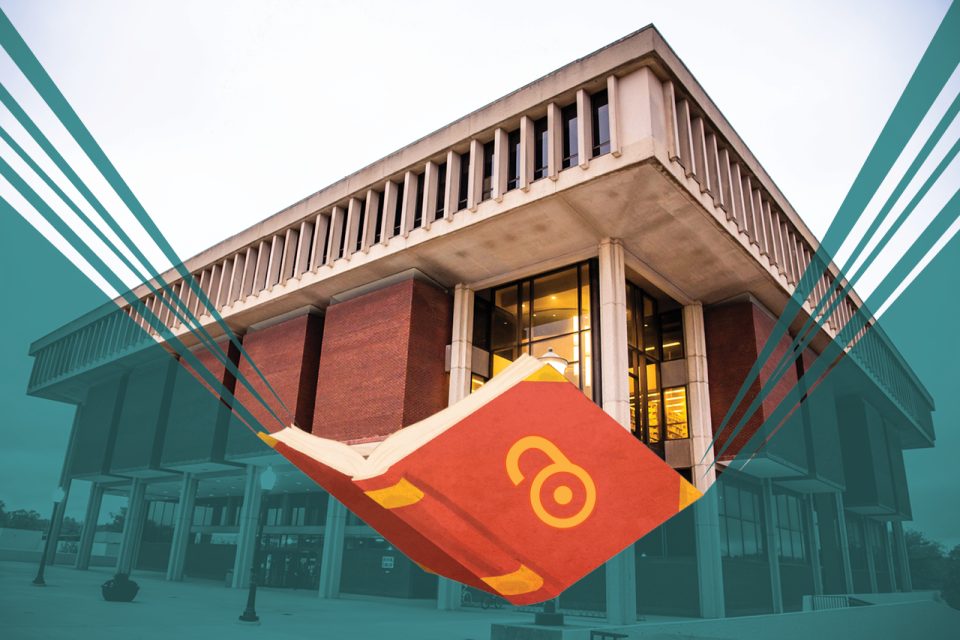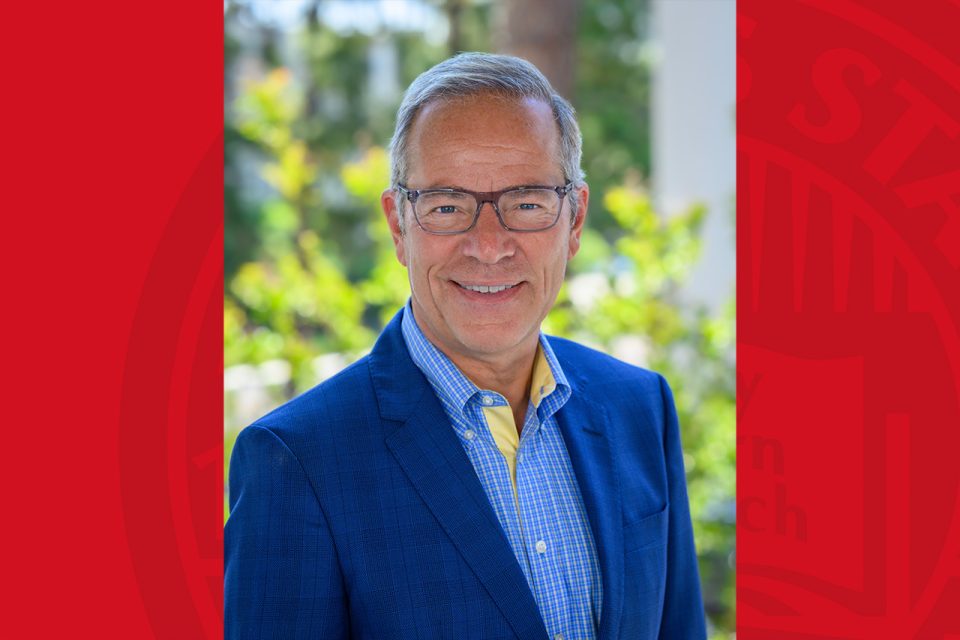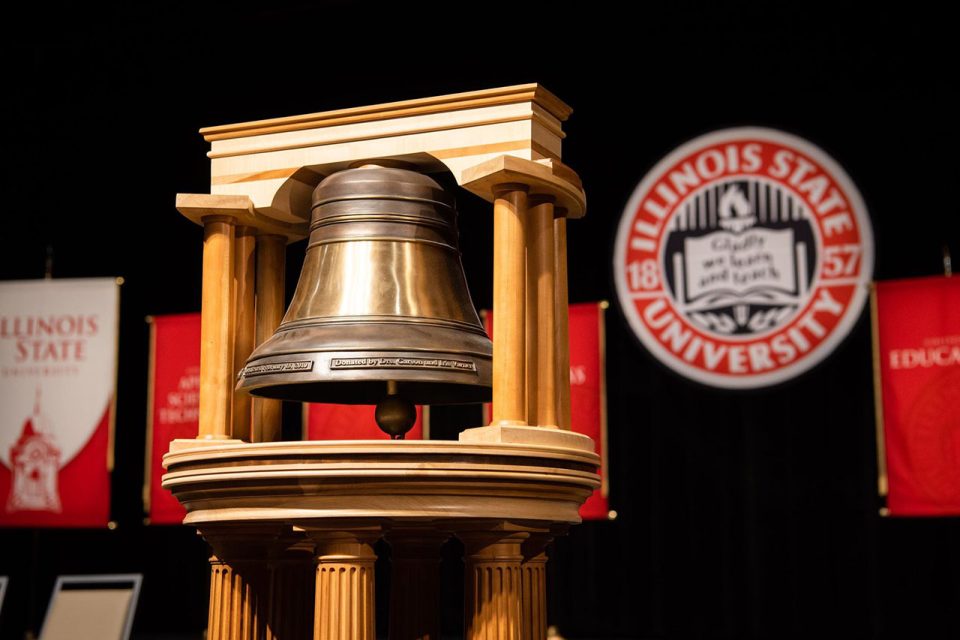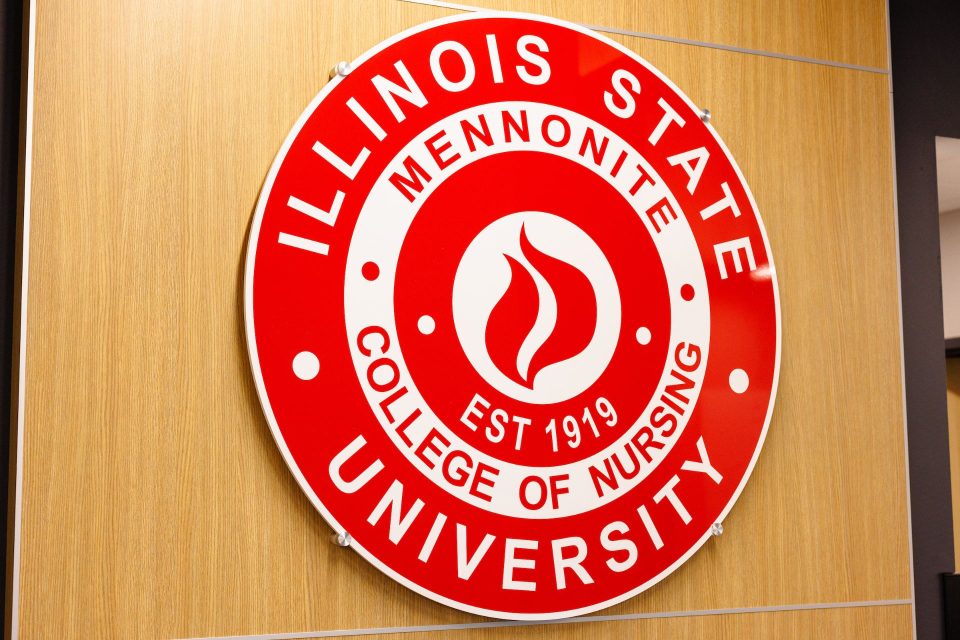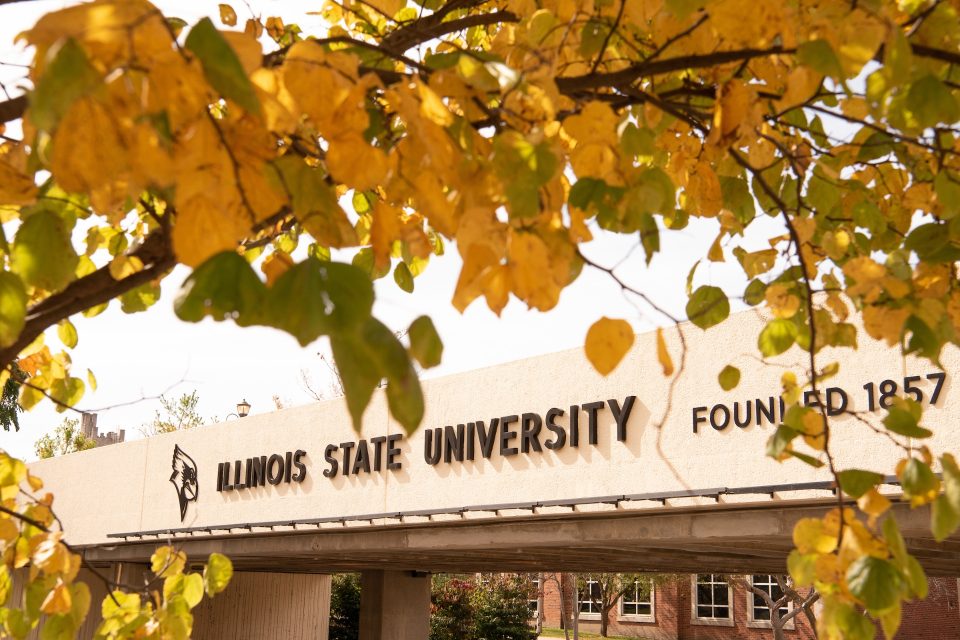Milner Library’s open-access agreements level academic publishing field
Open access is a global movement to knock down the paywalls that restrict the sharing and distribution of academic research. Dr. Rachel Scott, professor and librarian at Milner Library, is proud of the work Illinois State University is doing to make research free and accessible.
Appears In Redbird Scholar: Fall 2025 Fixed focus: Photography professor reclaims Filipino dignity stripped by colonialism Illinois State’s new simulation lab trains DCFS investigators Redbird Scholar Q&A: 5 questions for Office of Student Research Director Gina Hunter Doctoral student bridges theory and practice to become a better teacher New program pays ‘novice’ student researchers to work under faculty mentors Redbird Scholar grant and research news (fall 2025) Redbird media: Check out the latest #RedbirdScholar books (fall 2025) Vertical Farm grows sustainable food production, student learning opportunities Math grad student is Research Assistant of the Year for division of U.S. Army Corps of Engineers Read All“Open access is defined differently by different folks and even misused,” Scott said. “Essentially, it means that something is free online, and is licensed such that information can be remixed, distributed, and shared in a way that has no restrictions. It’s cost free.”
Open access (OA) offers faculty and students the opportunity to share their work and to read the research of their peers without having to pay for it.
“A lot of the work that goes into scholarly publications is provided by faculty and students, and they aren’t paid for it,” Scott said. “Behind that paywall, publishers are making huge financial gains by limiting access to the work.”
Scott has been setting up open-access publishing agreements since she came to Illinois State in 2020, and the numbers tell the story of why those efforts matter.
“I’ve negotiated about 15 open-access agreements with scholarly publishers, and 138 articles have been published thus far by 314 authors. And we’ve been gratified that about one-third of those include at least one student author. So far, we have saved authors $469,727.50 on OA publishing charges.”
In addition, Scott feels some personal satisfaction knowing that open access is helping her academic community.
“I love supporting our students and faculty,” she said. “We want people’s work to get out there and to be more easily accessed and engaged with, even for audiences globally.”
These efforts also align with the University’s strategic plan, Excellence by Design, specifically Strategic Direction III, which seeks to “elevate our institutional excellence by increasing the impact of our scholarly and creative activities.”
Dr. Laura Vogel is associate dean in charge of the College of Arts and Sciences research portfolio and a professor of immunology. She appreciates the efforts of Scott and her colleagues to expand OA initiatives.
“Our students and our faculty are very excited that our library has expanded the number of OA agreements because some journal charges come up front to the author, and it could reach thousands of dollars,” she said. “That could influence where an author chooses to publish. With OA agreements, the processing charges are waived, so it expands the choices for authors.
“We want people’s work to get out there and to be more easily accessed and engaged with, even for audiences globally.”Dr. Rachel Scott
“Most research studies don’t receive any royalties or payment, so the work is done purely from an academic perspective to share the information out to the wider community.”
As a published researcher, Vogel values these agreements because the goal is to make research more accessible and freely available to people who seek it.
“That could be a student, a community member, a taxpayer, or possibly someone in another country who can’t afford to pay a subscription fee,” she said.
Vogel noted that the OA agreements benefit students. According to research Scott co-presented at a conference last spring, more than a quarter of Illinois State seniors research with a faculty member, compared with only 19% at other four-year, public universities.
“This is a benefit for students as well,” Vogel said. “OA really allows a researcher’s work to reach more people. It furthers their professional reputation, and it promotes student success. We use OA to communicate the product of students’ academic research, which could be in the form of a thesis, a data set, a study conducted in a lab, a survey, a manuscript, or a clinical trial and to share those results with others.
“Communicating study results and getting feedback from others in your field is an important part of the scholarly process.”
ISU ReD
Milner Library’s support for OA extends beyond publishing agreements. Milner Library uses ISU ReD (short for Research and eData) as a digital repository to preserve and share the creative and scholarly work of Illinois State faculty, staff, and students from across campus. It hosts peer-reviewed OA journals, conference proceedings, University documents and reports, and research outputs created by students, faculty, and staff.
Student research became an important area of focus for ISU ReD in fall 2024 as it became the primary repository for theses and dissertations. Milner personnel, particularly copyright librarian Colby Cilento and Assistant Professor Lindsey Skaggs, and staff at the Graduate School, including Thesis and Dissertation Associate Erin Hastings and Assistant Director Mindy Kinney, collaborated to quickly establish a student-friendly process that holds many benefits for these scholars.
“In the fall of 2024, ISU ReD became the default deposit site for theses and dissertations across the University,” Scott said. “We are thrilled this student research is no longer behind a paywall where the work couldn’t be cited easily.”
To date, ISU ReD has recorded almost 2.4 million downloads worldwide. In addition to the theses and dissertations, ISU ReD hosts a variety of student research outputs, including the Office of Student Research’s Image of Research exhibits along with posters from the Graduate School’s annual University Research Symposium.
“ISU ReD includes an exhibit feature, which allows us to showcase these cool images in an engaging visual display,” Scott said. “This is good entry-level research, and it’s one way to empower students as scholars and researchers. I love that the library can be part of that and am so proud that ISU ReD was selected as the repository of choice.”
ISU ReD currently hosts five open-access academic journals: International Journal for Business Education; Jeffers Studies; Journal of STEM Teacher Education; Spora: A Journal of Biomathematics; and Teaching and Learning in Communication Sciences & Disorders. All these journals have a connection—an Illinois State-affiliated faculty or staff member—to the University community.
Scott said the growth of open-access options has encouraged more researchers to submit to these venues. These journals offer researchers the opportunity to publish with high editorial standards, indexing in major scholarly databases, DOI (digital object identifier) registration that links persistently to an article even if it travels to another publisher, high-quality content, long-term preservation, and unfettered access to the scholarly record.
“OA will elevate the excellence of the research and the creative work that is done here,” Scott said. “It expands how ISU creative and scholarly works can be discovered, and all colleges have benefited from these OA agreements. And it’s not just the hard sciences or the social sciences—it’s for everyone.”
Latest Publications
- Presidential Speaker Series returns this fall with AI pioneer Kevin Surace, November 4The Presidential Speaker Series returns this fall to feature the "Father" of the virtual assistant and AI innovator, Kevin Surace, on Tuesday, November 4, 2025, at 7 p.m., in the Brown Ballroom, Bone Student Center.
- Celebrating Excellence: The LOVE Award at Illinois State UniversityIllinois State University proudly presents the Living Our Values in Excellence (LOVE) Award, a monthly recognition celebrating individuals and groups who exemplify the University’s core values in their daily work. These values include Excellence in Teaching, Learning, and Scholarship; Individualized Attention; Equity, Diversity, Access, and Belonging; Collaboration; Community and Civic Engagement; Respect; and Integrity. Whether
- Illinois State University launches new artificial intelligence lab for health research initiative with funding from National Institutes of HealthIllinois State University has launched an interdisciplinary PAIR project made possible through funding from the National Institutes of Health’s AIM-AHEAD PAIR seed program. The project is a collaboration between Illinois State’s School of Information Technology and Mennonite College of Nursing to use AI for early detection of Atrial Fibrillation.
- BN Innovation Hub takes another step forwardThe Bloomington-Normal Innovation Hub (BN Hub) took another step forward September 24 by officially launching its advisory board. The board is designed as a collaborative forum to foster innovation, cross-sector connection, and strategic alignment among institutions and organizations in the region with the express purpose of achieving the goals laid out in the BN Hub’s strategic plan.
- RISE Town Hall forums, October 22 and 23Join us for RISE Town Hall forums scheduled for Wednesday, October 22, 2025, at 2:30 p.m., and Thursday, October 23, 2025, at 10 a.m., in the Prairie Room, Bone Student Center. We will share updates regarding the new budgeting framework, process, and timeline, and answer questions.
- Nominations sought for Grabill-Homan Community Peace PrizeThe peace and conflict resolution studies program at Illinois State University is accepting nominations and self-nominations for the Grabill-Homan Community Peace Prize, which is named for Joseph L. Grabill and the late Gerlof D. Homan, Illinois State University professors emeriti of history who helped establish the interdisciplinary Peace and Conflict Resolution Studies Program.



